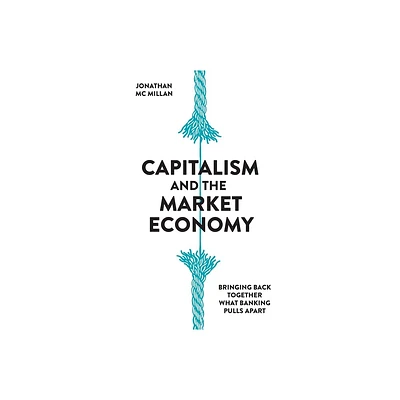Home
The Order of Economic Liberalization: Financial Control in the Transition to a Market Economy
Loading Inventory...
Barnes and Noble
The Order of Economic Liberalization: Financial Control in the Transition to a Market Economy
Current price: $30.00


Barnes and Noble
The Order of Economic Liberalization: Financial Control in the Transition to a Market Economy
Current price: $30.00
Loading Inventory...
Size: OS
*Product Information may vary - to confirm product availability, pricing, and additional information please contact Barnes and Noble
Can knowledge of financial policies in developing countries over four decades help the socialist economies of Asia and Eastern Europe become open market economies in the 1990s? In all these countries the loss of fiscal and monetary control has often resulted in high inflation that undermines the liberalization process itself. In the second edition of
The Order of Economic Liberalization
, Ronald McKinnon builds on his influential work on the liberalization of financial markets in less developed countries and outlines the progression necessary to move from a "repressed" to an open economy.
New to this edition are chapters that contrast the gradual Chinese approach to liberalizing domestic and foreign trade with the "big bang" approach followed by some Eastern European countries and republics of the former Soviet Union. Financial control and macroeconomic stability, McKinnon argues, are more critical to a successful transition than is any crash program to privatize state-owned industrial assets and the banking system.
The Order of Economic Liberalization
, Ronald McKinnon builds on his influential work on the liberalization of financial markets in less developed countries and outlines the progression necessary to move from a "repressed" to an open economy.
New to this edition are chapters that contrast the gradual Chinese approach to liberalizing domestic and foreign trade with the "big bang" approach followed by some Eastern European countries and republics of the former Soviet Union. Financial control and macroeconomic stability, McKinnon argues, are more critical to a successful transition than is any crash program to privatize state-owned industrial assets and the banking system.


















